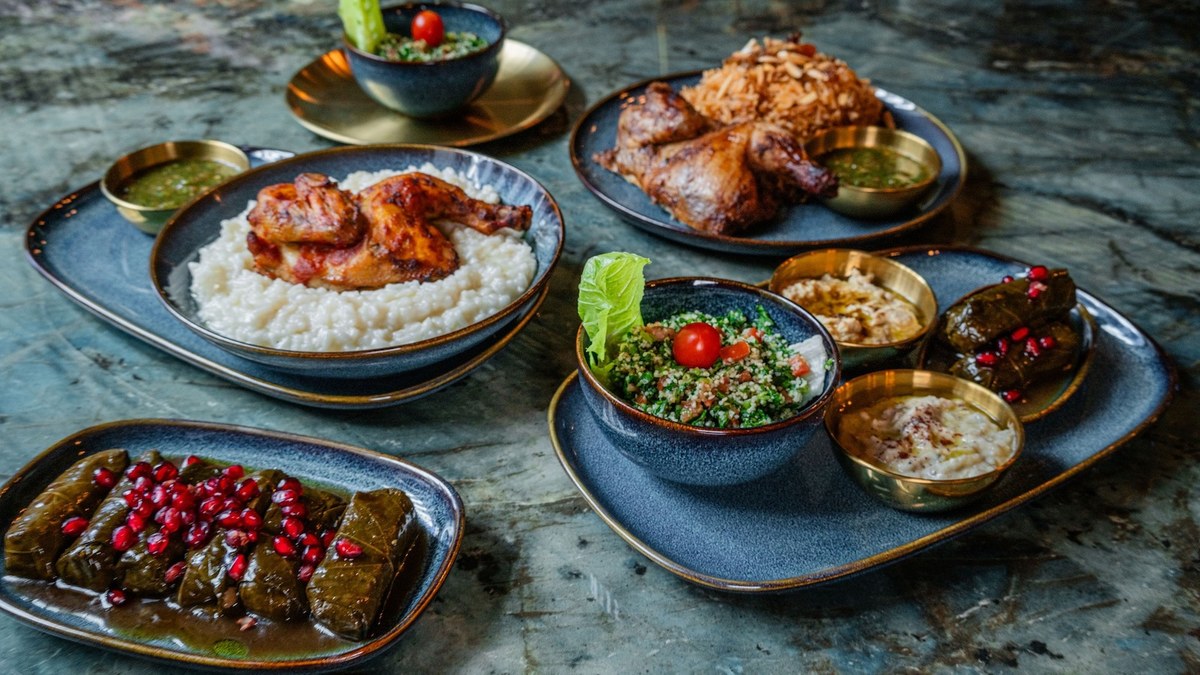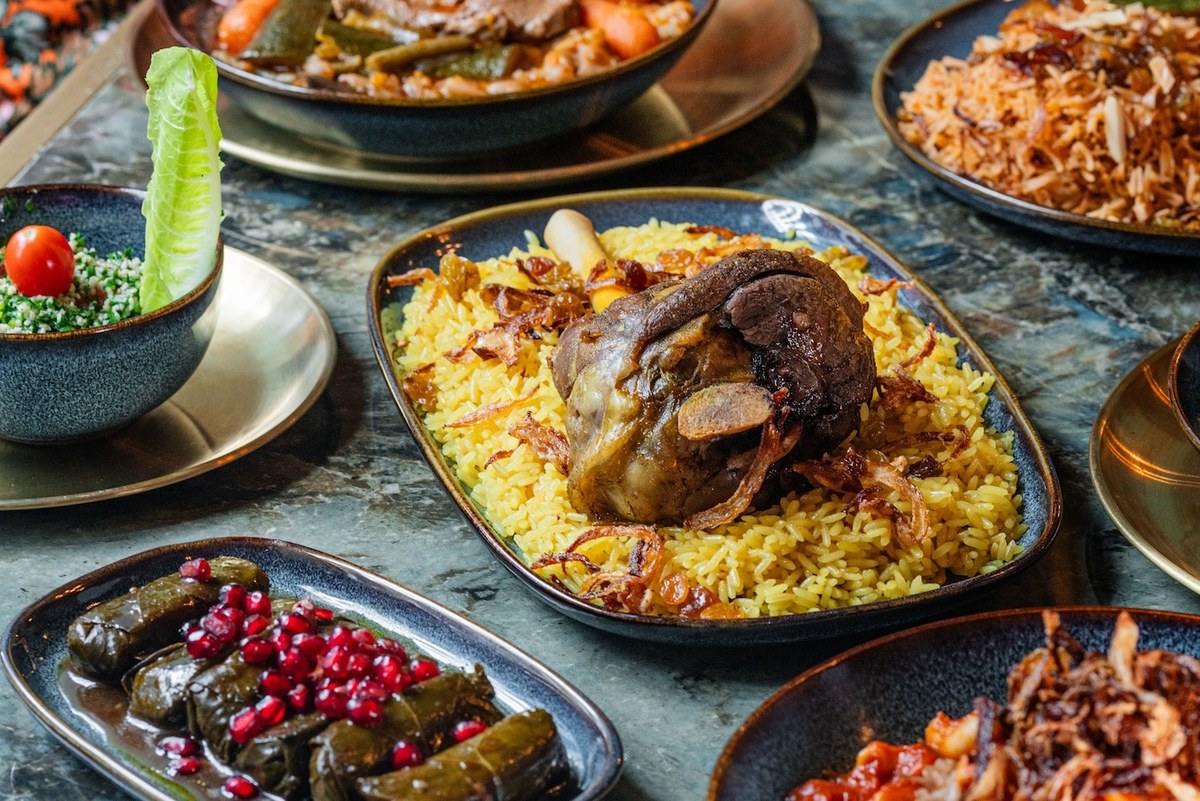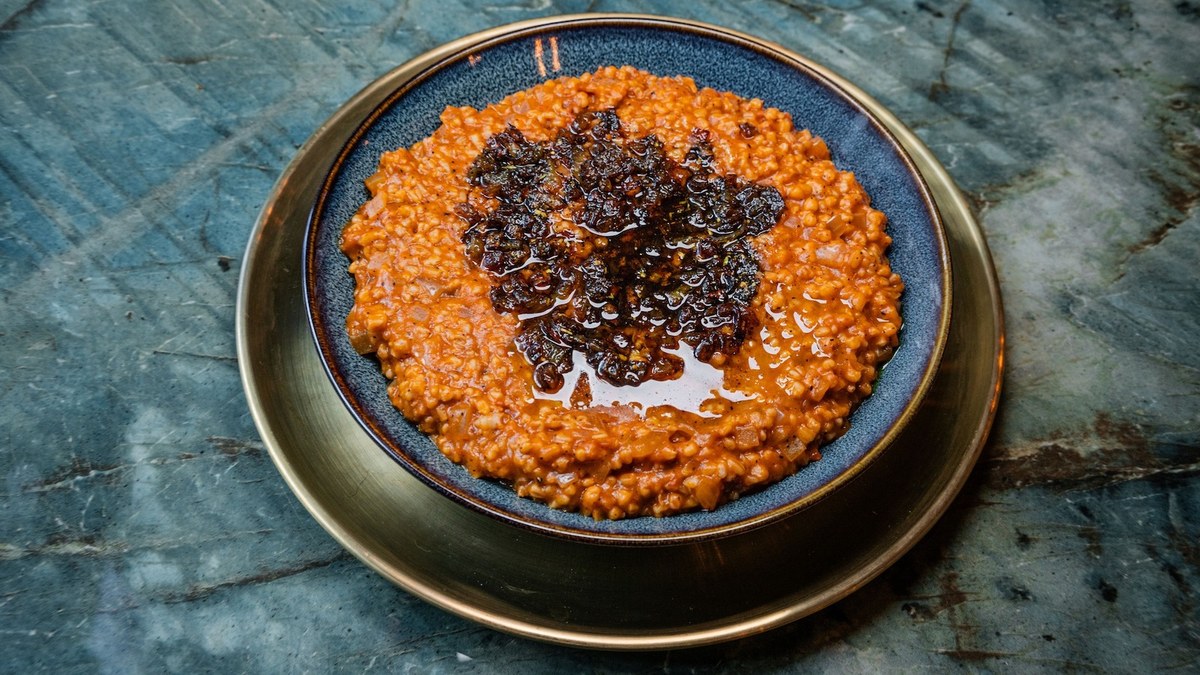LONDON: As Maha Alharbi looks out into the chic dining room of Queen Mama’s Kitchen, past bubbling pots of lamb shank mandi and rows of golden dallah coffee pots, it’s not just Arabs who have stopped in for iftar, but Americans.
Here in Portland, Oregon, in one of the only Saudi Arabian restaurants in the United States, the Kingdom’s richly diverse cuisine is more than a taste of home — it is an introduction to a culture that is often misunderstood around the world.

Queen Mama’s Kitchen. (Supplied)
“We heard a lot from our customers that they felt like they traveled to Saudi Arabia,” says Alharbi, who opened the west coast restaurant as a catering business in 2020 after moving to the US in 2013 to study. “We share with them the culture, the way we drink our gahwa, and, of course, the food that comes from all different regions across the country.”
The chef-entrepreneur — who admits he never enjoyed cooking as a child — started off by making traditional meals for his university classmates, inviting them to come over to his house “at any time” for a gathering.
After gaining her degree in business, in 2020 she launched a food cart serving classic Saudi dishes. But just as she started finding success through word-of-mouth and social media, the COVID pandemic hit and disrupted her plans.

Cheesecakes are one of Maha Alharbi’s specialties. (Supplied)
Refusing to give up, Alharbi opened a food truck a year later. But then her husband, whom she met at home in Alkhobar, was diagnosed with pancreatic cancer and sadly passed away.
At a time of overwhelming grief, it was Alharbi’s four children who encouraged her to keep going “for Baba.” So, with newfound resolve, she set about finding a space that could turn her vision of serving Saudi food to the community into a permanent reality.
The restaurant opened its doors in 2022, and has gone from strength to strength, with online reviewers praising the restaurant’s authenticity, service and hospitality. It has proven so popular, in fact, that Flock — a new food hall in the city’s five-star Ritz-Carlton hotel — has invited the restaurant to take up residency as its only Arabic restaurant.

Queen Mama’s Kitchen. (Supplied)
“This is an absolute must-visit,” one customer wrote online. “The hospitality was outstanding, and the authenticity of the Saudi cuisine is a rare find in the United States. What makes it even more special is that it’s a family-owned business led by a mother who is also the chef.”
Alharbi says it’s through reviews like that, and when her kids come and tell her, “Mama, someone wants to say thank you,” that she finds “the power to keep going.”
The menu at Queen Mama’s Kitchen features dishes from across Saudi Arabia, including flavour-packed rice bukhari from the east, vegetable pasta stew margoog from the Riyadh region, and cracked wheat jareesh — the restaurant’s most popular dish — from the country’s north.
Alharbi even flies in Saudi spices and gahwa from the Kingdom to make sure “everything has the right taste.”

Queen Mama’s Kitchen. (Supplied)
But Alharbi’s first passion was baking — especially cheesecake. Desserts were the first entries on the menu, and slices infused with Arabic flavors like saffron and dates are still served out from a counter attached to the restaurant.
Customers don’t fit any single demographic. On any given day, there can be couples, students, families or even out-of-town visitors who travel from as far as Washington and Seattle (three hours away) to tuck in to the lavish breakfast spreads on Sunday mornings.
“A lot of people say when they come to the restaurant that they have never tried Saudi food and don’t know anything about it, so we give them little samples,” Alharbi explains. “Once they try it, they always end up coming back for more.”

Queen Mama’s Kitchen. (Supplied)
Queen Mama’s Kitchen has also received strong support from Portland’s Arabic community, which includes families from the Gulf, Lebanon, Egypt and Iraq.
During Ramadan, a special menu is served each day from 7 pm until midnight — although Alharbi says high demand means they need to keep the doors open late some nights to make sure everyone is fed.
Iftar starts with Saudi dates, gahwa and refreshing laban, followed by soup, mezze, a main dish and Arabic desserts.
During Ramadan, the restaurant is often full of non-Muslims who have been “trying the experience of fasting” to learn more about Islamic culture and want to sample the special menu after sunset.
Arabs also come in to enjoy the authentic samboosa and Vimto — which has become a Ramadan staple in the Gulf since it was introduced to Saudi Arabia by a local trading family in the 1920s.
Ultimately, Alharbi says, wherever you are in the world, familiar food is a way to stay connected to your home during the holy month.
“Ramadan is Ramadan everywhere,” she says. “Some people ask how it is outside of Saudi Arabia, but it’s the same — especially when you eat the same delicious food.”
Jareesh from Queen Mama’s Kitchen

Jareesh is the restaurant’s most-popular dish. (Supplied)
Ingredients:
500g chicken, beef, or lamb, cut into chunks; 2 cups steel-cut oats; 2 large onions, finely chopped; 3 tbsp ghee; 2 tbsp tomato paste; 2 cups chopped tomatoes; 1 tsp cumin; 1 tsp black pepper; salt to taste; 6 cups water (or as needed)
For the mosmannah topping:
2 large onions, sliced; 2 tbsp ghee; blend of spices of your choice (must include dried lemon)
Instructions:
1. In a large pot, heat 1 tbsp of ghee. Add the meat chunks and brown them on all sides.
2. Add another 2 tbsp of ghee to the pot and toss in the chopped onions. Cook until soft and golden, to bring out their sweetness.
3. Stir in the tomato paste, chopped tomatoes, cumin, black pepper, and salt. Mix everything well so the meat is coated in the mixture
4. Pour in the steel-cut oats and mix well.
5. Add water to the pot, just enough to cover everything. Bring to the boil, then reduce the heat and simmer for 2 1/2 to 3 hours, stirring occasionally.
For the mosmannah topping:
1. In a separate pan, heat the ghee and add the sliced onions. Cook slowly until they turn deep golden brown.
2. Add your special mix of spices, including the dried lemon, to the onions. Cook for a few more minutes.
3. Once the jareesh is ready, spoon it onto a serving dish and top with mosmannah.
